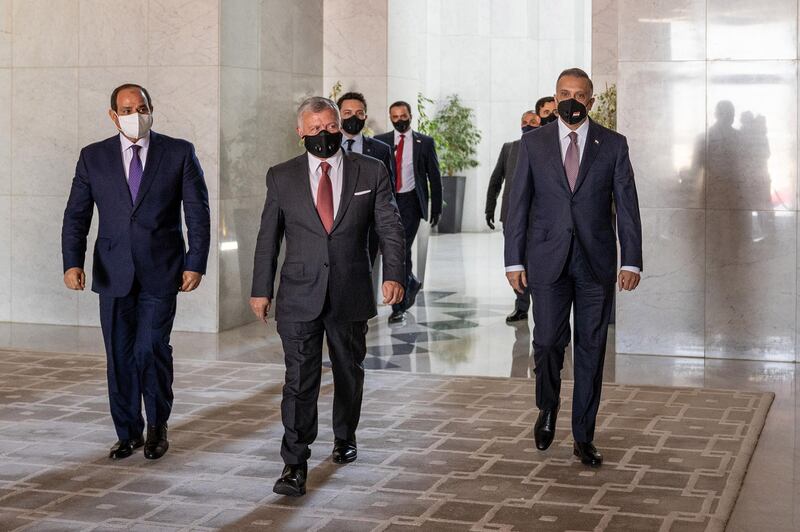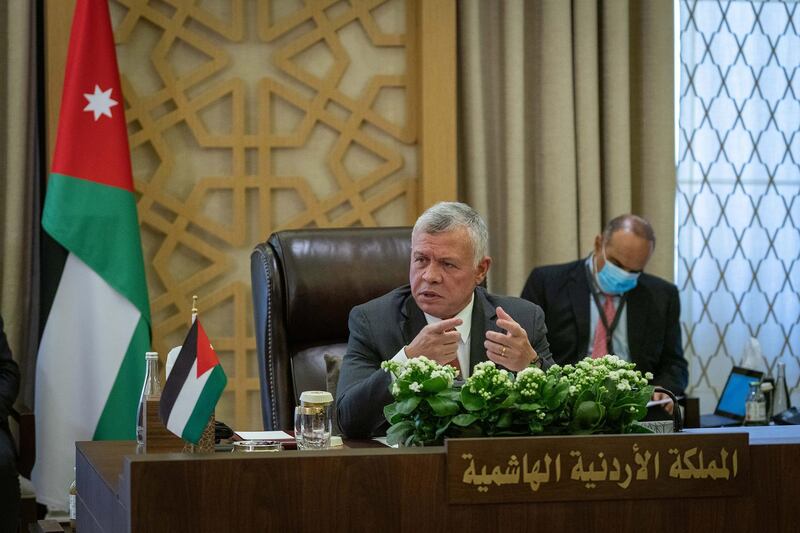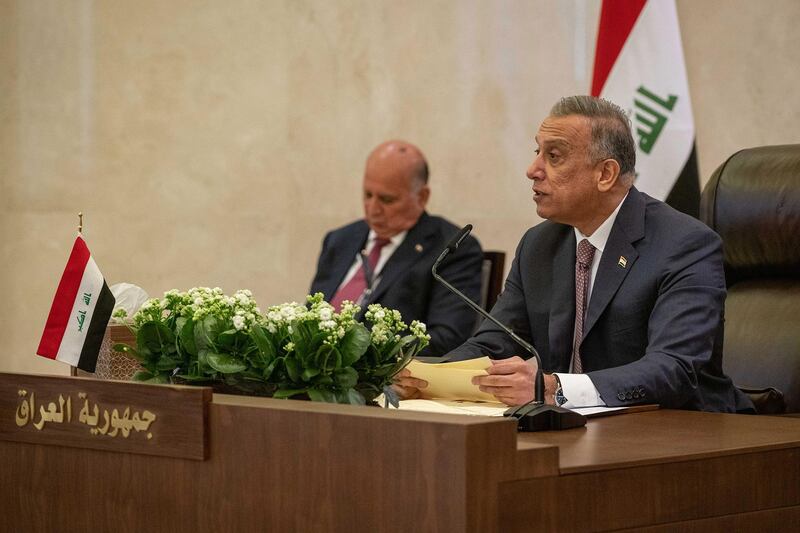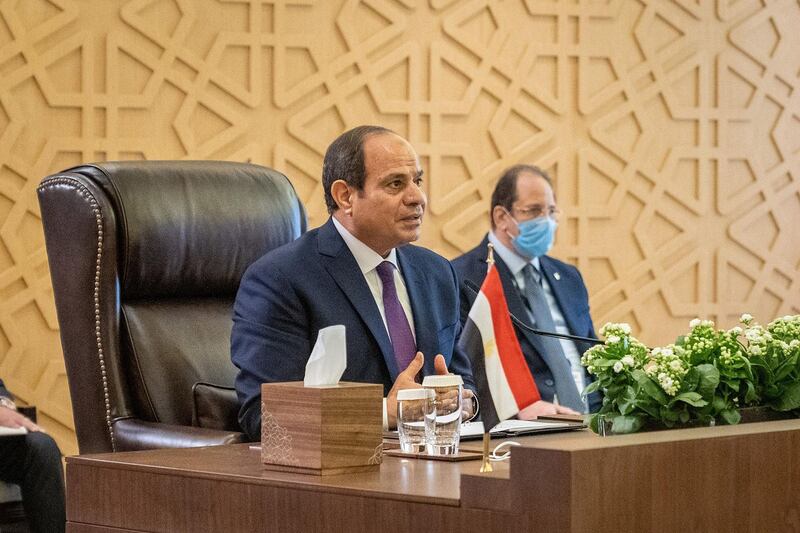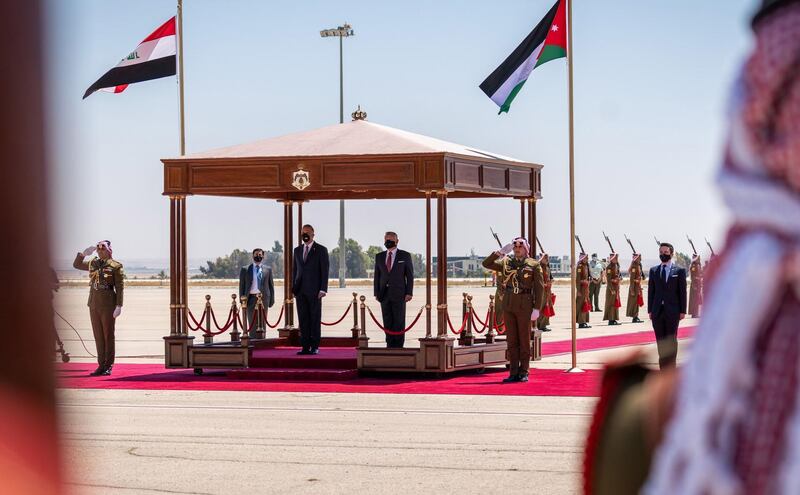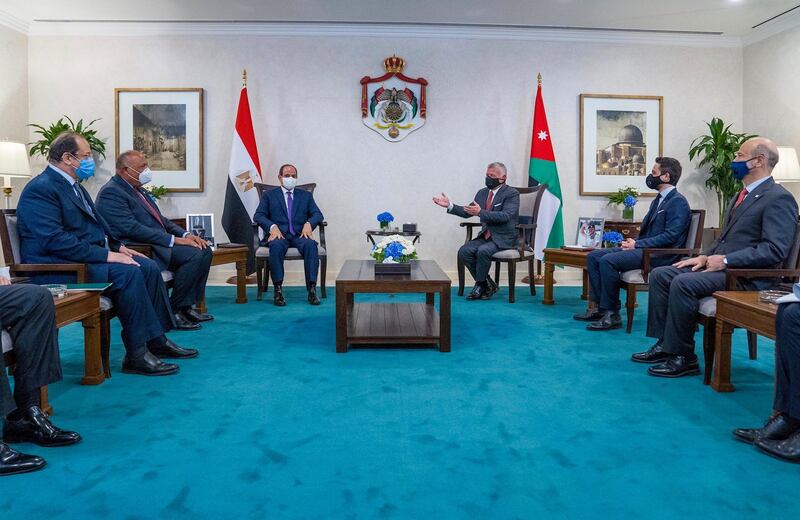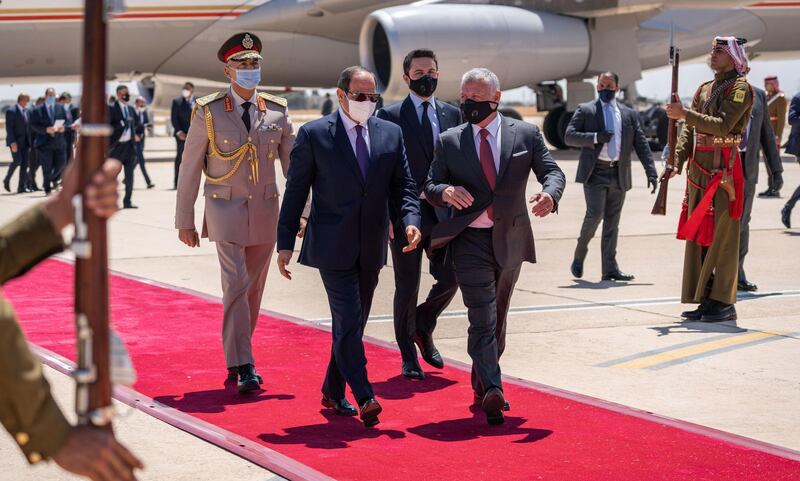Jordan, Iraq and Egypt on Tuesday declared their intention to strengthen economic co-operation, renewed their commitment to a Palestinian state and denounced foreign meddling in the region at a summit in Amman.
Jordan’s King Abdullah, Egyptian President Abdel Fattah El Sisi and Iraqi Prime Minister Mustafa Al Kadhimi agreed to boost ties in health, education, trade and food security.
The three agreed to look for political solutions to conflicts in the Arab world as they formalised their growing alliance before a 2021 rife with challenges for the region.
In a socially distanced summit at the Queen Alia International Airport, on the outskirts of Amman, the three leaders discussed efforts to economically integrate their countries.
“Our meeting today is very important in light of the current extraordinary conditions in the region and the world,” King Abdullah said.
He called for joint action to deal with rapid developments and foreign meddling in the region.
“The Palestinian cause remains the core issue in the region,” King Abdullah said.
He said Jordan continued to call for a two-state solution that ended the Israeli occupation.
Mr El Sisi repeated the importance of the Palestinian cause, saying a two-state solution would “have a positive impact on the entire region”, the Jordanian Court said.
Mr Al Kadhimi told of Iraq’s desire for a balanced relationship with its Arab neighbours, including joint economic zones between the three countries to deepen economic integration and co-operation.
He said the “geographic and historical bonds between the three countries provide the solid basis for building long-term economic partnerships".
Mr Al Kadhimi said Baghdad wanted new co-operation on trade, investment, energy, electricity, infrastructure, transport and health care.
Official sources said Libya was a major topic of the meeting, along with Turkey’s role in the country and in Syria.
Ethiopia's Grand Renaissance Dam and the water security and rights of Egypt and Sudan were also discussed.
Other matters included the activation of a joint industrial zone on the Jordanian-Iraqi border.
The three states will work on food security and using their collective manufacturing and pharmaceutical sectors to produce personal protective equipment and a future Covid-19 vaccine for regional distribution.
They called for the Arab Peace Initiative for the Palestine-Israel conflict to be reactivated.
They said the only lasting resolution would be in accordance with relevant UN resolutions and “in a manner that fulfils all the legitimate rights of the Palestinian people.”
The three also called to “stop Israeli steps to annex Palestinian lands and any measures to undermine prospects to achieve a just peace or seek to alter the historical and legal status quo in Jerusalem".
Jordan, Egypt and Iraq called for increased efforts to reach political solutions to crises in Syria, Libya and Yemen in accordance to UN Security Council resolutions.
They called for “strengthening Arab national security and ending foreign meddling in internal Arab affairs".
The summit, the third of its kind in a year, came a day after an Iraqi minister taking part tested positive to Covid-19, almost derailing the meeting.
The three leaders stressed that “Covid-19 and its ramifications should not hinder the continuation of co-ordination".
The summits are part of a desire in Cairo and Amman to develop a security, diplomatic and economic bloc between the three countries.
Together, they hold a third of the Arab world's population and a wealth of cultural, agricultural, and natural resources.
Egyptian and Jordanian sources say the two countries hope to use the bloc and their alliances to reassert Arab diplomacy and an Arab voice in a region where present crises are increasingly being dictated by outside actors.
As part of their desire to institutionalise their bloc, the leaders established an executive secretariat with an annually rotating headquarters, starting this year at Jordan’s Ministry of Foreign Affairs.
